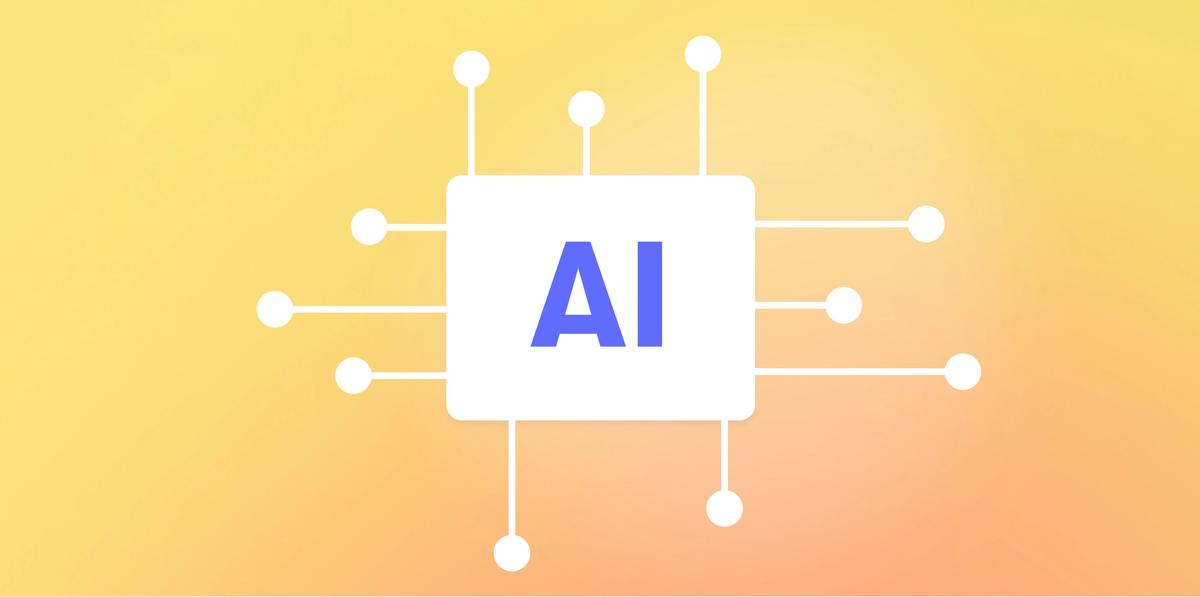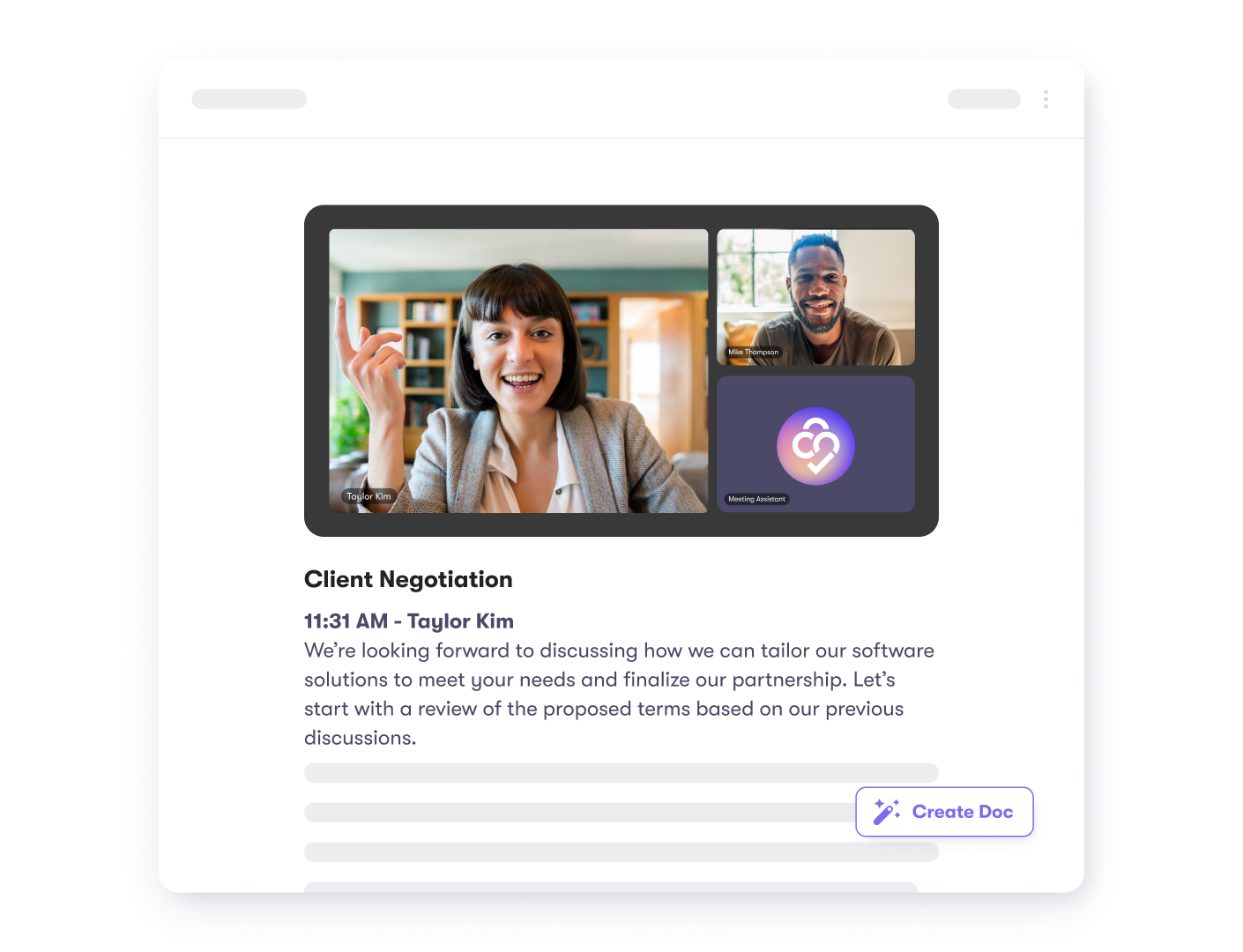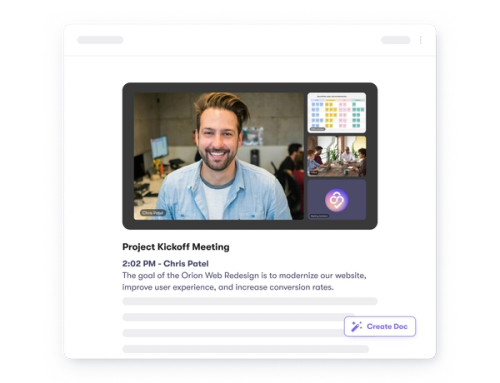AI Tools for Product Managers: Your Guide to the Best Tools in 2023

Product manager AI tools are the future of your workflow.
Artificial intelligence (AI) and machine learning (ML) can help remove brutally mundane work and create some much-needed time to focus on more important, more creative, or more pressing projects. Used correctly, they can also offer an outlet for skill development or to fill a few gaps in professional expertise (we’re lookin’ at you @code). By leveraging some of these programs, product managers can streamline their workflows, boost team performance, and deliver successful products that meet stakeholders' needs. Programs like Collato can also improve communication and collaboration and can help employees find the information they need quickly, helping teams work more efficiently together, too.
But if you're anything like us here at Collato, you've been bombarded with emails and newsletters about AI-generated pope coats and ChatGPT's rise to stardom. But no need to get overwhelmed with the sheer amount of AI plug-ins and programs–instead, let’s find the ones that are the most useful and trusted. And most importantly, ones that will make your life a little easier. Here are some of our favorites, including AI-powered product management softwares, intelligent automations, and predictive analytics.
👩💻 Best AI tools for product development
AI can also be used to optimize the product development process by identifying potential roadblocks and optimizing resource allocation. ML algorithms can analyze historical data on product development, such as time to market, development costs, and performance metrics. Based on this data, AI can identify potential bottlenecks and suggest ways to optimize the product development process. Product development can seem like an uphill battle, but using AI can make the process much smoother.
Collato: the AI Assistant for Meetings
Imagine attending meetings where you can actively participate and contribute ideas, all while knowing a powerful AI assistant is capturing every detail. Collato isn't just a meeting recorder; it's a comprehensive meeting management and documentation platform designed to streamline your workflow and empower informed decision-making. Stop wasting time frantically scribbling notes – Collato allows you to focus on what truly matters: having a productive and engaging discussion.
Collato attends and transcribes your meetings. Later, you can connect your other tools, upload files and PDFs, add voice notes, photos of handwritten notes, and more to create custom and polished documents in seconds.

Best features:
- AI Notetaker: No more scrambling to take notes or spending hours summarizing meetings afterwards. Collato does the heavy lifting for you, automatically recording, transcribing, and summarizing your discussions with AI. Get those precious hours back and focus on what you do best.
- 360° Product Insights: Go beyond just audio recordings: Upload screenshots, photos of whiteboards, sketches, voice notes, and more. Collato's AI extracts text from all sources, ensuring every detail of the meeting is meticulously documented and easily accessible in a single, organized platform.
- AI Document Generator: Collato seamlessly transforms raw notes into actionable documents and summaries using customizable templates. This eliminates the need for lengthy post-meeting write-ups and allows you to move swiftly from brainstorming sessions to taking concrete action.
- Enhanced Alignment & Informed Decisions: Ensure everyone is on the same page by effortlessly sharing meeting outcomes and decisions with Collato. Standardize your documentation process with pre-built and customizable templates, fostering consistency and clarity. With a complete record of discussions at your fingertips, Collato empowers data-driven decision-making, allowing you to guide your strategy with confidence.
Pricing:
Free: $0 per month, 10 hours of recording per month, conversation summary, personalized note templates.
Pro: $10 per seat/month, plus everything included in the Free plan, 50 hours of recording per month, Video screen capture (coming soon).
Business: $49 per seat/month, plus everything included in the Pro plan, unlimited recording, custom workflows (e.g., EHR integration).
Reviews:
G2: 4.8 out of 5 (5 reviews)
Product Hunt: 4.8 out of 5 (82 reviews)
OMR: 4.4 out of 5 (12 reviews)
Our honorable mentions for the best AI tools for product development:
Autodesk Fusion 360 is an AI-powered product design and manufacturing platform that uses AI and ML to automate and optimize various aspects of the product development process, from generative design to simulation and manufacturing.
TensorFlow is an open-source AI framework developed by Google. Product managers can use to develop and deploy ML models for tasks such as image recognition, natural language processing, and predictive analytics.
DataRobot is an AI-powered machine learning platform that can help product managers automate and optimize various tasks related to data analysis, such as data cleaning, feature engineering, model training, and deployment.
Sisense is an AI-powered business intelligence platform that can help product managers analyze large volumes of data and gain insights into customer behavior, market trends, and product performance.
🔍 Best AI tools for market research
You can't build a product that people will love without first understanding their needs and wants, which is why market research is the not-so-secret ingredient to successful product management. AI-powered market research tools can help product managers to gain insights into customer preferences, opinions, and behaviors. Natural Language Processing (NLP) algorithms can also analyze customer feedback from various sources, like social media, forums, and even customer reviews.
Additionally, AI- and ML-powered market research tools can help product managers to monitor the competition and stay up-to-date with the latest trends in their industry, which is becoming increasingly important.
Mixpanel: the best AI tool for market research
Mixpanel is a versatile tool that offers several capabilities for product managers and market researchers. It enables tracking user engagement and behavior patterns in real-time, allowing businesses to make data-driven decisions. It provides insights into how users interact with products, helps identify patterns, and supports informed decisions about product development and marketing strategies.
Best features:
- Event tracking: Mixpanel allows businesses to track specific events or actions performed by users within their products. These events can be customized based on business requirements and can include actions like button clicks, form submissions, app installations, and more. This feature helps identify user behavior patterns and understand user needs.
- Funnel visualization and analysis: Mixpanel utilizes AI to create funnels that visualize and analyze the user journey. Funnels help businesses identify the steps where users drop off or convert, enabling optimization of conversion rates and improvement of user engagement. This feature provides valuable insights for enhancing the overall user experience.
- User retention tracking: With AI-powered user retention tracking, Mixpanel provides insights into how often users return to a product. This capability helps businesses understand user loyalty and identify opportunities to improve user retention. By analyzing retention rates over time, companies can make informed decisions to enhance user satisfaction and engagement.
- A/B testing: Mixpanel offers A/B testing capabilities, allowing businesses to test different variations of their product or user experience. This feature is valuable for market researchers to assess the impact of various marketing strategies, user interface changes, or product features on user behavior, conversion rates, and other relevant metrics. A/B testing supports data-driven decision-making and optimization of marketing campaigns.
- User segmentation: Mixpanel's user segmentation capabilities enable businesses to divide their user base into distinct groups based on attributes and behaviors. This segmentation helps market researchers understand different customer segments, their needs, preferences, and buying behaviors. It informs market targeting and allows for the creation of personalized marketing campaigns to improve customer satisfaction and drive conversions.
- Real-time analytics: Mixpanel provides real-time analytics, allowing businesses to monitor user activity and behavior as it happens. Real-time data is valuable for tracking campaigns, identifying issues promptly, and taking immediate action. This feature enables businesses to stay agile and responsive in their decision-making process.
Pricing:
Starter: Free, up to 20M monthly events
Growth: $20+ per month, up to 100M monthly events
Enterprise: $833+ per month, 5M-100M+ monthly events
Reviews:
G2: 4.5 out of 5 (1,040 reviews)
Capterra: 4.5 out of 5 (117 reviews)
Gartner: 4.2 out of 5 (68 reviews)
Our honorable mentions for the best AI tool for market research:
Amplitude is another product analytics tool designed specifically for product managers. It measures user engagement, retention, and conversion. Amplitude can provide insights into user behavior by leveraging ML, allowing for the perfect leverage for successful products.
Qualtrics is perfect for product managers seeking customer feedback. It is a survey software that can analyze data and extract valuable insights.
IBM Watson is a cognitive computing platform that can help extract insights from seemingly unstructured data. The use of natural language processing and machine learning enables the analysis of customer feedback and social media trends.
Google Trends is a free (🥳!!!) tool that uses ML to analyze search trends to identify search query trends. It even has the ability to monitor brand reputation.
🌟 Best AI tools for customer feedback and support
AI-powered chatbots are becoming increasingly capable (and trusted 🤖) of handling routine customer inquiries, freeing up product managers to focus on more complex issues. By identifying common issues and areas for improvement, product managers can improve the user experience and reduce customer churn.
Zeda.io: the best tool for customer feedback
Zeda.io is a product discovery and strategy platform designed for customer-focused teams. It assists in identifying customer problems, determines the next steps in product development based on actionable product intelligence, and creates product strategies that drive desirable business outcomes.
Zeda.io allows you to collect and centralize customer feedback and segment your customers to identify product opportunities that align with your customer and business needs. Zeda.io’s AI generates insights from the collected feedback. The platform offers a comprehensive suite of tools to manage your product development process and ensure customer satisfaction by closing the feedback loop.
Best Features
- AI-powered Insights: Use AI technology to gain valuable insights by analyzing product intelligence, segmenting cohorts, and examining customer attributes.
- Business Impact: Connect the revenue data with customer feedback and product features to analyze the business impact.
- Connect with pre-defined customer cohorts: Easily connect with customer cohorts by integrating product analytics platforms such as Mixpanel and Amplitude. This will help you gain valuable insights into different customer groups.
- Feedback filters: Efficiently organize your feedback by creating filters that align with your workflow and priorities. This allows for easy accessibility to feedback that is most important to you.
- Feedback stages: Utilize the progress-based view for a dynamic categorization and monitoring of feedback into backlog, open, or resolved categories.
- Different Channel Integration: Zeda.io offers various channel integrations, such as Slack, HubSpot, Intercom, Teams, Zendesk, Amplitude, and Gong, to gather feedback and generate insights. Additionally, you can collect feedback through our in-app widgets, customer portal, and feedback forms.
- Effortless Import: Easily transfer your feedback from your current system to Zeda.io through a straightforward CSV file import format.
Pricing
Free: You can get started for free with Zeda.io.
Pro: $99 /creator/month and $999 /creator/year
Custom: You can directly contact their team
Reviews:
G2: 4.6 out of 5 (21 reviews)
Capterra: 4.0 out of 5 (7 reviews)
Our honorable mentions for the best AI tools for customer feedback and support:
Zendeskis a customer service software platform that offers cloud-based tools to help businesses manage and support customer interactions. Its core product is a ticketing system for centralized tracking and resolution of customer inquiries. Zendesk also provides features like a knowledge base, live chat, a help center, social media integration, reporting and analytics, automation and workflow capabilities, and integrations with other applications.
Freshdesk provides a suite of customer service software, including AI-powered chatbots and NLP tools for automating customer interactions and routing inquiries.
Salesforce Service Cloud offers AI-powered chatbots, sentiment analysis tools, and self-service options to help automate customer interactions and improve the customer experience.
Intercom provides an AI-powered conversational platform that allows businesses to automate customer interactions through chatbots and targeted messaging.
Helpshift is an AI-powered customer service platform that includes chatbots, sentiment analysis tools, and ML capabilities to help automate customer interactions and improve support efficiency.
📈 Best AI tools for sales forecasting
Sometimes, sales forecasting can feel like a crapshoot. AI can help by more accurately analyzing historical sales data and identifying patterns and trends. Machine learning algorithms (increasingly the standard for AI-powered sales forecasting!) can be trained to recognize patterns in sales data, such as seasonality, trends, and outliers. By analyzing these patterns, AI can predict future sales more accurately, allowing product managers to make more informed decisions about inventory, pricing, and marketing.
Salesforce CRM Analytics: The best AI tool for sales forecasting
This tool uses AI and ML to provide accurate sales forecasts and insights. It can analyze sales data and identify patterns and trends to help you and your team make more informed decisions.
Best features:
- Spot Opportunities, Predict Outcomes, and Get Recommendations: Leverage the power of Einstein Analytics to identify opportunities, forecast outcomes, and receive valuable recommendations that drive business success.
- Automate Discovery: Discover the story hidden within your data effortlessly. Einstein Analytics automates the process of finding simple answers to complex business questions, providing transparent and understandable AI models to understand what happened, why it happened, what will happen, and what actions to take.
- Focus on Outcomes: Tailor analytics to your specific business needs and goals. Einstein Analytics enables you to customize and personalize analytics to obtain precise information that helps improve any business outcome, providing specific guidance and recommendations for success.
- Unify on One Platform: Visualize your entire business on a single screen without the need for multiple systems and logins. By consolidating all your data, including external systems, onto a single platform, Einstein Analytics allows you to create comprehensive visualizations, predictions, insights, and more, providing a holistic view of your organization.
- Take Instant Action: Always be aware of the specific steps to take next based on insights. With Einstein Analytics, you can collaborate in real-time using features like Chatter, update records, and share dashboards, enabling you to act quickly upon the insights gained from your data.
- Build with Clicks: Easily create AI models, dashboards, and more without the need for extensive coding or IT support. Utilize customizable templates, third-party apps, and custom-built dashboards to create advanced experiences rapidly and efficiently.
Pricing
Sales Cloud Einstein: €50 per user per month (billed annually). Augment Sales Cloud with advanced analytics, AI capabilities.
Einstein Predictions: €75 per user per month (billed annually). Gain automated discovery and predictive insights for improved decision-making.
CRM Analytics Plus: €150 per user per month (billed annually). Access an advanced analytics platform with built-in AI functionalities, empowering your business with comprehensive data.
Reviews:
G2: 4.2 out of 5 (339 reviews)
Capterra: 4.3 out of 5 (73 reviews)
Our honorable mentions for the best AI tool for sales forecasting:
- Zoho CRM offers AI-powered sales forecasting tools that can help businesses predict future sales trends and identify potential risks. It can even provide insights into sales performance and help businesses optimize their sales strategies, too.
- InsightSquared is an AI-powered sales analytics platform that can help businesses improve their sales forecasting accuracy. It can analyze historical data and identify patterns and trends, providing insights into sales performance and future trends.
😎 Best AI tools for personalization
AI can help product managers to personalize the user experience by analyzing user behavior and preferences. Machine learning algorithms can analyze user data, such as browsing history, search queries, and purchase history, to suggest relevant products, content, and promotions. By providing personalized recommendations, product managers can increase customer engagement and loyalty.
Adobe Target: The best AI tool for personalization
This is an AI-powered personalization platform that can help businesses deliver personalized experiences across channels. It, like the others, uses machine learning algorithms to analyze customer behavior and provide personalized recommendations, messages, and offers.
Best features:
- Automated Personalization: Adobe Target leverages artificial intelligence and machine learning algorithms to automatically deliver personalized experiences to individual users. It analyzes user behavior, preferences, and other data points to dynamically optimize content and recommendations in real-time.
- A/B and Multivariate Testing: With Adobe Target, you can conduct A/B tests and multivariate tests to compare different variations of your website or app experiences. This helps you identify the most effective content, design, and user journeys, allowing you to make data-driven decisions and continuously improve your customer experiences.
- Audience Segmentation and Targeting: Adobe Target enables you to create detailed audience segments based on various attributes, including demographics, behaviors, and customer profiles. This segmentation allows you to deliver tailored content, offers, and recommendations to specific customer segments, enhancing engagement and conversion rates.
- Experience Targeting: This feature allows you to personalize experiences based on specific criteria, such as user location, referral source, or device type. It enables you to deliver contextually relevant content and promotions to enhance the user experience and drive desired actions.
- Recommendations Engine: Adobe Target includes a powerful recommendations engine that uses machine learning algorithms to deliver personalized product recommendations based on user behavior, purchase history, and preferences. This feature helps increase cross-selling and upselling opportunities, as well as overall customer satisfaction.
- Reporting and Analytics: Adobe Target provides robust reporting and analytics capabilities to measure the performance of your personalized experiences. You can track key metrics, such as conversion rates, engagement, and revenue, and gain insights into the effectiveness of your personalization strategies. This data helps you optimize your campaigns and make informed decisions for future enhancements.
- Integration with Adobe Experience Cloud: As part of the Adobe Experience Cloud suite, Adobe Target seamlessly integrates with other Adobe solutions, such as Adobe Analytics and Adobe Campaign. This integration allows for unified data management, deeper insights, and coordinated marketing campaigns across channels.
Pricing:
Not made publicly available.
Reviews:
Gartner: 4.4 out of 5 (231 reviews)
G2: 4 out of 5 (57 reviews)
OMR: 3.9 out of 5 (9 reviews)
Our honorable mentions for best AI tools for personalization:
Collatoallows users to create and save their own note-taking templates. This means you can tailor the way you capture information during meetings to fit your specific needs and preferences. For example, a product manager might have a template that includes sections for user research, competitor analysis, and feature ideas, while a marketing manager might have a template with sections for target audience, campaign goals, and messaging.
Collato's AI can automatically generate summaries of your meetings. While the specifics of how Collato personalizes these summaries aren't mentioned, it's possible that the AI could learn and adapt to your communication style and priorities over time, highlighting information that's most relevant to you.
Dynamic Yield This program is an AI-powered personalization platform that can help businesses personalize their website and app experiences. By using ML to analyze data, it can provide an overview of customer behavior and provide personal recommendation messaging in real-time.
Acquia Lift is an AI-powered personalization platform that can help businesses deliver personalized experiences across channels. It uses machine learning algorithms to analyze customer behavior and provide personalized recommendations, content, and offers.
😴 Tl;dr
Product managers have a vast array of AI software tools at their disposal to help streamline their work, generate new ideas, and improve their decision-making processes. These tools can be a lifesaver, saving you time, effort, and probably a few gray hairs along the way. And just like the world of AI software, the world of product management is always evolving. So, if you want to stay ahead of the game, you need to be up-to-date with the latest trends and technologies. That way, you'll be ready to face whatever the future throws at you, whether it's an army of chatbots or a horde of machine-learning algorithms. Just remember to stay curious, stay open-minded, and stay caffeinated! After all, it's not easy being a product manager, but AI can hopefully lighten the load.





